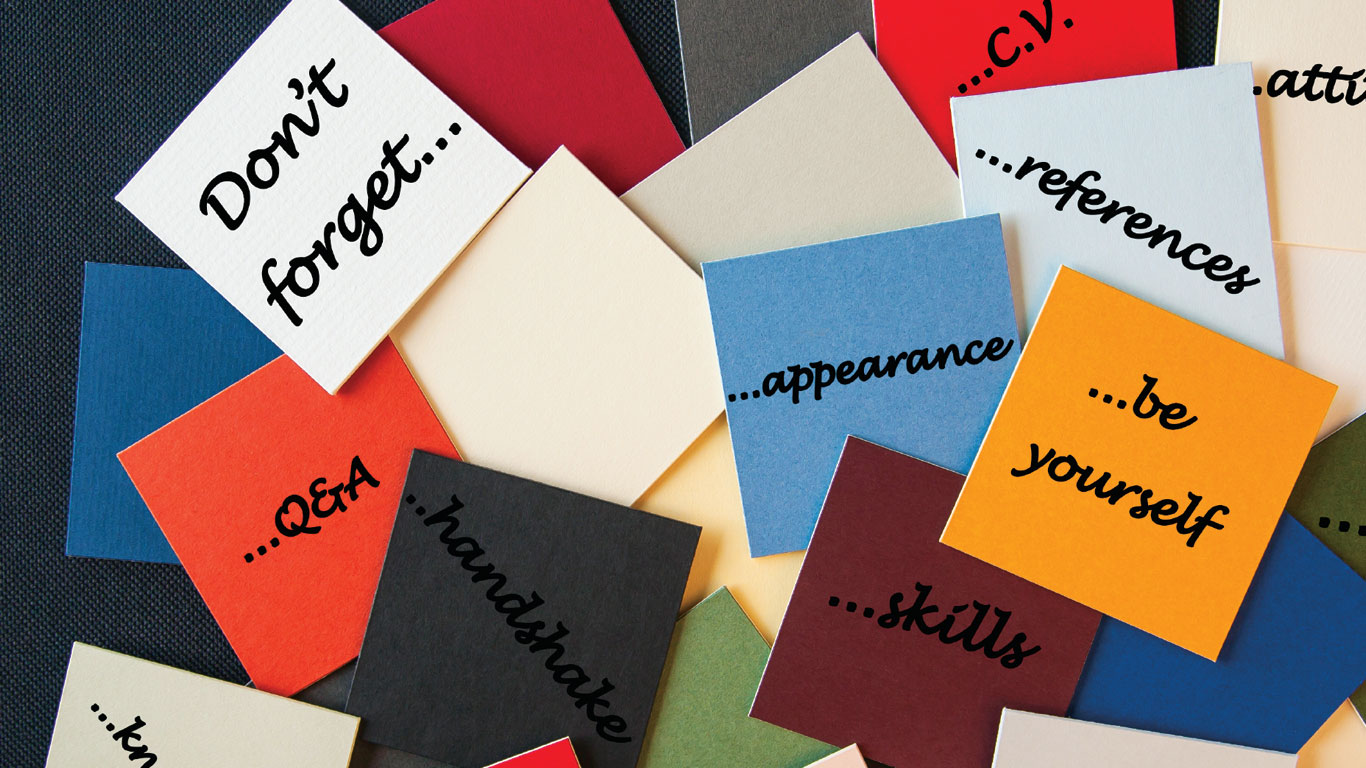- Candidates
- Login
- Set Up Account
- Create a Job Alert
- Search Tools
- Resources
- Employers
INTERVIEW PREP: DO YOUR HOMEWORK
Getting ready for an interview doesn’t mean just throwing on your best clothes and grabbing a copy of your resume as you head out the door. You should prepare for an interview the same way you prepare for an exam or presentation — study and practice. This is your one chance to make a great first impression on a potential employer and there is neither an opportunity for a do-over nor extra credit!
STUDY THE ORGANIZATION
When AgCareers.com polled HR professionals, they said that one of the best ways for candidates to stand out was by researching the organization prior to interactions.
Find out all you can about the company. The very first step is visiting the company’s web site (hopefully you did this before you applied). Take time to look at all the tabs and pages within the site; pay special attention to about us, company overview/history, products/services, news/press releases and events sections. Visit their social media pages to find out the latest happenings. Consider following their Twitter feed or “liking” them on Facebook to stay up to date on news. Do a general internet search on the company to find out if they’ve been in the news lately so you won’t be thrown off guard if they say “Have you heard about ….?”
Search for information about the people that are interviewing you so you understand their role in the organization. You may find this information on the company site, a generic web search, or on professional networking sites such as LinkedIn.
Do you know anyone that works for or has interned at the company? Talk to them about the culture and ask for any tidbits of information they could share that might be useful during the interview. You can even ask them about the dress code for the organization so you can tailor your interview attire to fit with the company.
PRACTICE ANSWERS
You can locate interview questions numerous places on the internet, and you’ll find that many companies still use a few of these same basic questions, such as “Tell me about yourself,” or “Where do you see yourself in five years?” Talk through your answers to these questions, but make sure your responses do notsound like a canned one you’ve readonline. Instill your personality into your responses!
When preparing for an interview and determining how you would answer questions, it is even more important to thoroughly read the description or job posting for the position for which you are interviewing.
Look for words or phrases that are repeated and you will immediately know what is most important to the employer. What are the job requirements and how can you demonstrate you will meet these requirements? What about the preferred qualifications? If you meet all of them, make sure to stress this in the interview, but don’t be deterred if you don’t.
Develop a plan for how youcould work towards some of the preferred qualifications that you might be missing. Keep in mind that preferred qualifications aren’t deal breakers or they would be listed as required instead.
Most of all, you should be prepared to share specific examples that address requirements and qualifications that are needed for the job.
Examine your work history, volunteer activities and classroom experience for illustrations of succes sand overcoming obstacles that you can share in the interview. Some of your most decisive responses will come to questions that start with “Tell me about a time when you … .” and employers expect you to provide detailed instances from your history. Be ready to discuss how you contributed and the outcomes.
It is OK to occasionally ask the interviewer at the conclusion of your response if you’ve satisfactorily answered all of the components of the question. These multiple part questions are complex and it is easy to miss one of the facets they’d like to have you respond to.

PREPARE QUESTIONS
Have at least three to five questions prepared ahead of time that you can pose to the interviewer. HR professionals that were polled by AgCareers.com felt that the best way for candidates to stand out was by asking engaging questions during interactions.
Expect employers to ask if you have any questions at the conclusion of the interview and be prepared to ask them! Employers are discouraged when applicants ask few or no questions either during or at the end of the interview.
As a guide, prepare one question that relates to the organization as a whole, one question that relates to the specific position you are interviewing for and then at least one additional question.
Additional questions could relate to the hiring process, such as when they hope to make a decision on the position, or relate to the interviewer, for example inquiring about how long they’ve been in their position with the company. Stay away from questions regarding salary and benefits during the first interview.
The more questions you’ve prepared, the better, because usually at least one of them will be answered by the employer over the course of the interview.
REHEARSE
Set-up a mock interview with campus career services, or beg a friend, relative or trusted advisor to interview you for practice. Give them a copy of the job posting or description prior to your practice interview.
Rehearse a friendly “hello,” smile, and firm handshake (be wary of being a wet noodle or a death grip — aim for a happy medium). Ask them for candid feedback to help you make needed adjustments before the real thing. This will help you work out a few of the kinks and feel more comfortable when you sit down for the live interview.
MATERIAL PREP
This seems like common sense, but it doesn’t hurt to have a reminder. Pack a clean notepad and pen for your interview.
Have at least five copies of your resume printed on nice paper. Even though you probably submitted your resume during the application copies for additional people that may sit in on the interview.
It is perfectly acceptable to ask the hiring manager how manyinterview so you can prepare enough materials.
Also bring several copies of your references printed on the same paper. It is very common for interviewers to ask for your references during the interview and you will appear unprepared if you don’t have them.
Don’t forget to send a quick note to your references to let them know they might receive a call from “XYZ Company” as you are interviewing for a position as a “Rockstar Sales Rep.”
If applicable, bring your portfolio or examples of your work. Think about investing in a document case to neatly store and transport all your gear to interviews.
WHERE ARE YOU GOING? – LITERALLY!
If you are local, do a trial run to the organization so you know where you are going and how to get there.
Keep track of how long it takes so you can plan your trip accordingly. If you will be driving or flying in from out of town, allow plenty of time prior to the interview just in case you get lost.
Many of us have experienced our GPS device sending us to 5th Street instead of Avenue, or we take a wrong turn. YOU CAN’T BE LATE!

FINISHING TOUCHES
Prepare your interview wardrobe and remember it is always safe to be on the dressier side. Clothes should be clean, wrinkle-free and fit well. Your outfit should indicate professionalism, but not be distracting when you are expressing yourself and your qualifications.
FINAL MINUTES
The day of the interview has finally arrived. Keep your cell phone in the car or make sure it is silenced. Be early, but not too early!
Obviously you shouldn’t be late, but being too early can also have a negative effect on your chances of landing the job. Employers’ days are packed with meetings and deadlines. Most hiring managers maintain a very strict schedule. Showing up too early can disrupt their schedule and also may make it uncomfortable if you are left sitting in a waiting room for 20 minutes.
Checking in five to ten minutes prior to your interview time is ideal. Put on a smile and be cordial and friendly to everyone you meet at the organization. Receptionists and secretaries are often gate keepers and their impression may be shared with those making the hiring decision.
With these tips and some preparation and practice you should be set for success. Really preparing will help calm your nerves and make you more comfortable during the interview so you can show the potential employer why they should hire you!